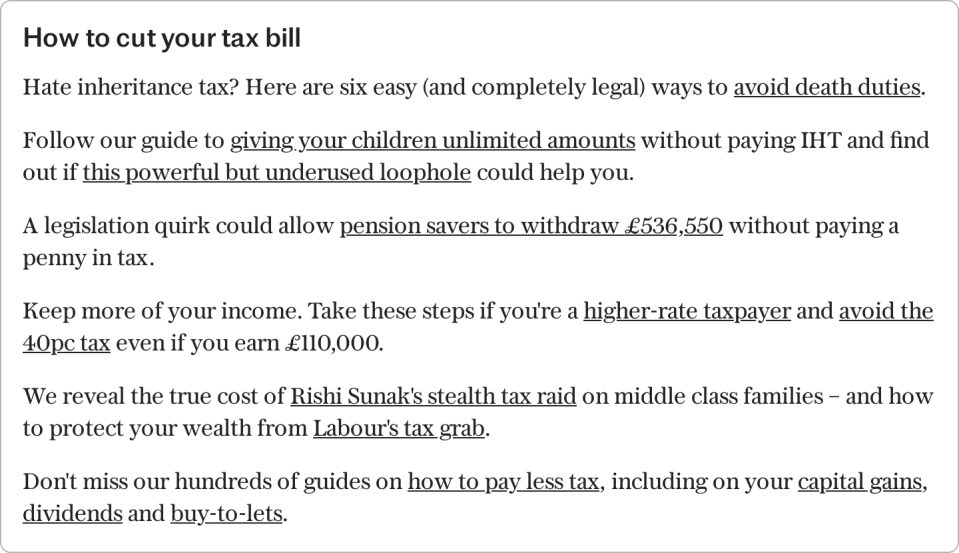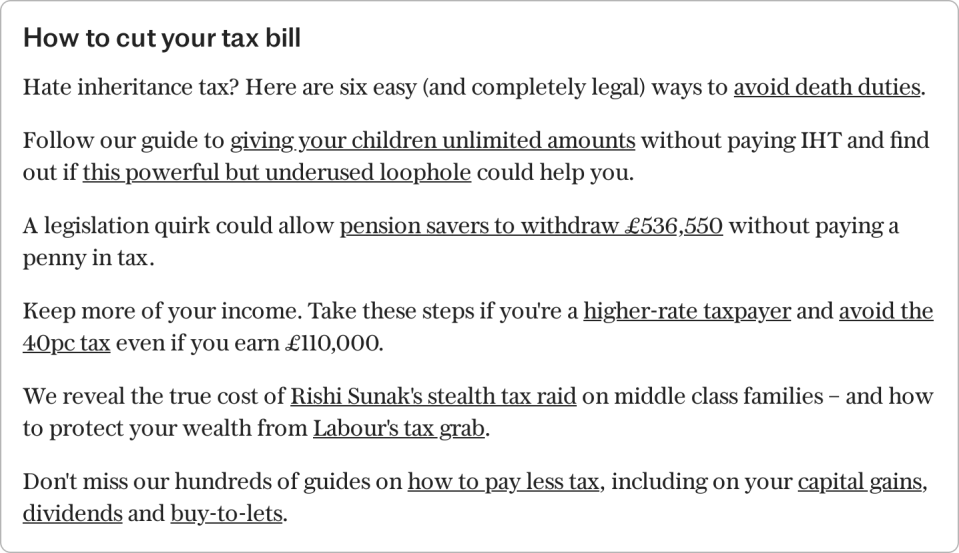The rush to effect “change” in the next 100 days will become irresistible and the need to tear up the Labour manifesto to justify painful taxes on pensions, savings and “wealth” held in assets will play out.
These will be the days of “opening the books” and finding that there is no money left. Yet the books are already fully open and transparent, so the discovery of imaginary black holes in the public finances will not wash.
But Labour can escape that straitjacket by instead finding they underestimated their spending needs and therefore new tax-raising plans are swiftly needed.
If there is one thing Labour has in abundance it is guile, and ways to justify more taxes will undoubtedly be found.
In the confected state of public elation following the defeat of the Conservatives, the public might be forgiven for being confused over what Labour said over the six or so weeks of the general election campaign.
Labour politicians repeatedly contradicted themselves on tax policies, and when pressed to give a straight answer would reply that they had “no plans” to raise taxes beyond those already advertised, which almost certainly meant the exact opposite.
This confusion was intentional and the inability of any media interrogators to nail Labour’s economic jelly to the table will have, as was always intended, provided a massive opportunity to introduce higher taxes Denis Healey could only have dreamt of.
Throughout the election campaign, Labour refused to rule out changes to capital gains tax (CGT).
Given the views of many assertive high-tax campaigners who are now Labour MPs that CGT should be used as a proxy for a wealth tax they dared not advocate in the open, we can expect a significant broadening of what CGT is applied to and the raising of the rates at which it is levied.
Even HM Revenue and Customs (HMRC) has said that raising CGT rates could lead to a fall in the tax revenue it generates by £3bn, as people could be expected to decide against selling assets that would be highly taxed.
Transactions already in process are likely to be caught, however, so revenues will likely climb, before plummeting to earth as people choose to retain existing assets like shares and buy-to-lets rather than sell and face a tax bill.
CGT is a particularly poisonous tax because the “gain’ that is taxed is often no more than inflation, with no intrinsic improvement in the value at all.
Politicians who support policies that result in inflation, then tax you for any gain it causes in assets are punishing you for their errors by ensuring you cannot protect yourself from their inflationary policies.
The most consistent demand from Labour’s high-tax advocates is to increase CGT rates to match those of income tax and for it to be chargeable on death in addition to inheritance tax.
This would leave the gain on the properties and other assets to be taxed twice, firstly for CGT and then for its contribution to the estate.
Labour’s favourite think-tanks, the Resolution Foundation and Institute for Public Policy Research (IPPR), have been promoting this additional death tax, while tax-fetishists, the Institute for Fiscal Studies (IFS), calculates it would raise another £1.6bn to pump into our overweight, low productivity public sector.
The current threshold of inheritance tax – which the Cameron-to-Sunak Conservatives stubbornly refused to raise, let alone abolish the tax – is likely to remain. Labour could even afford to raise it but still increase total death tax revenues by adding CGT on top.
Those with properties taxable now, or from inheritance in the next four to five years will feel the pain. It was only three years ago that Sir Keir Starmer said: “We’re looking at precisely… income from property, income from dividends, stocks, shares etc… all of those options are a wealth tax in the broadest sense of the word.”
Lisa Nandy, shadow minister for international development under the previous government, has also said: “At a minimum we should bring wealth taxes into line with income taxes – we go after the wealth… wealth is in assets and that’s where we start.”
Labour has said it will not target working people and routinely describes income from property sales or rentals and selling equities as unearned income – so raising the tax rates on these is highly likely.
When pressed, Angela Rayner even refused to rule out applying CGT on the sale of family homes. Ending the freeze on fuel duty, and removing the favourable tax treatment of pensions were never ruled out, despite repeated questioning by journalists and interviewers.
The 25pc tax-free pension allowance may well be abolished despite tens of millions of people having invested in their pensions on the basis of a commitment from the state that they can withdraw 25pc tax free, the rest being taxed.
And then there’s council tax – which looks set to be turned into local wealth taxes by Labour changing council tax bands and even devolving greater tax-raising powers to local governments.
By changing council tax so a greater share of the tax take will come from owners of more expensive properties, Labour can claim it is helping councils fund their services without having to restrain their own spending centrally.
That would transform the purpose of council tax away from financing the use of local services through the likely size of a household to a sharply progressive punitive tax on more expensive properties. Tax bands may change or more may be introduced, but the end game is far higher property taxes.
By the end of the first 100 days, the pain from higher taxes will be tangible. The tip of the iceberg in the manifesto will have given no clue to what lay beneath – but no one can say they were not warned.

EMEA Tribune is not involved in this news article, it is taken from our partners and or from the News Agencies. Copyright and Credit go to the News Agencies, email news@emeatribune.com Follow our WhatsApp verified Channel





